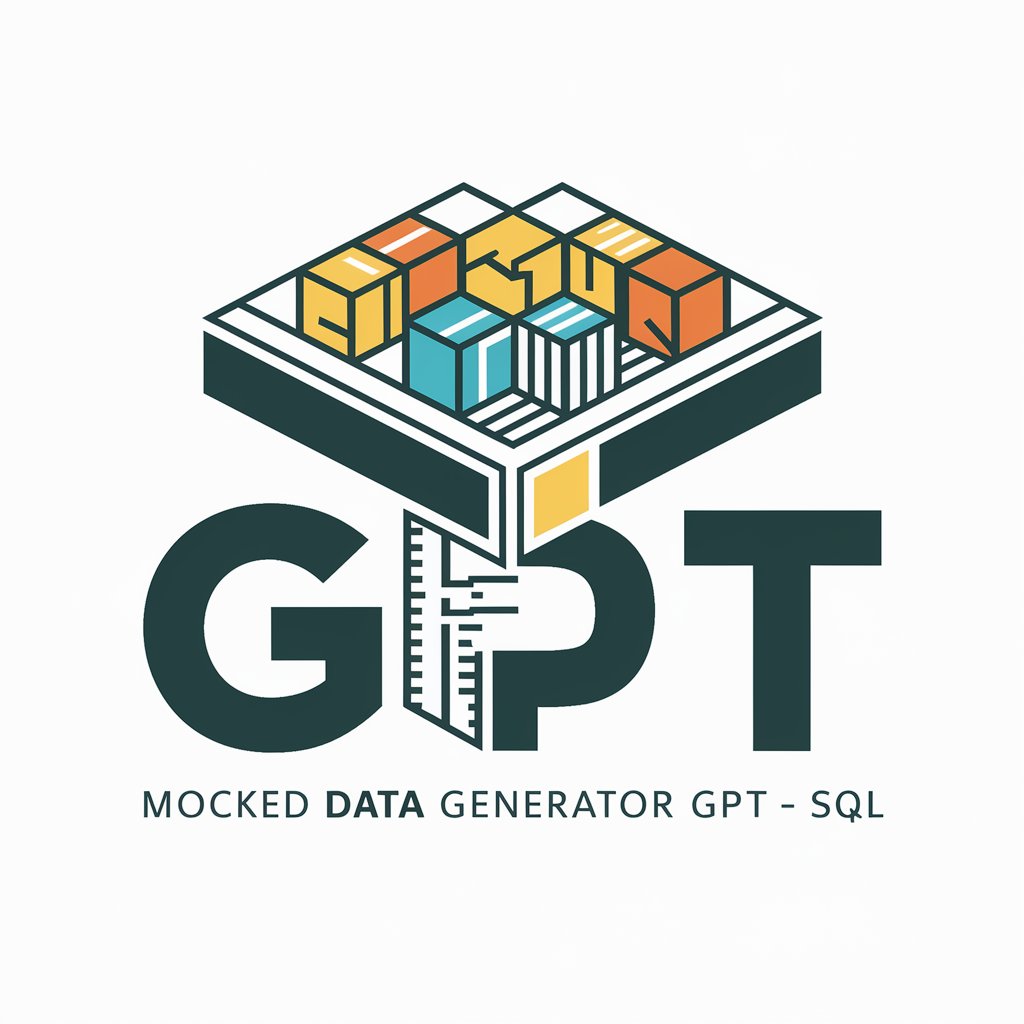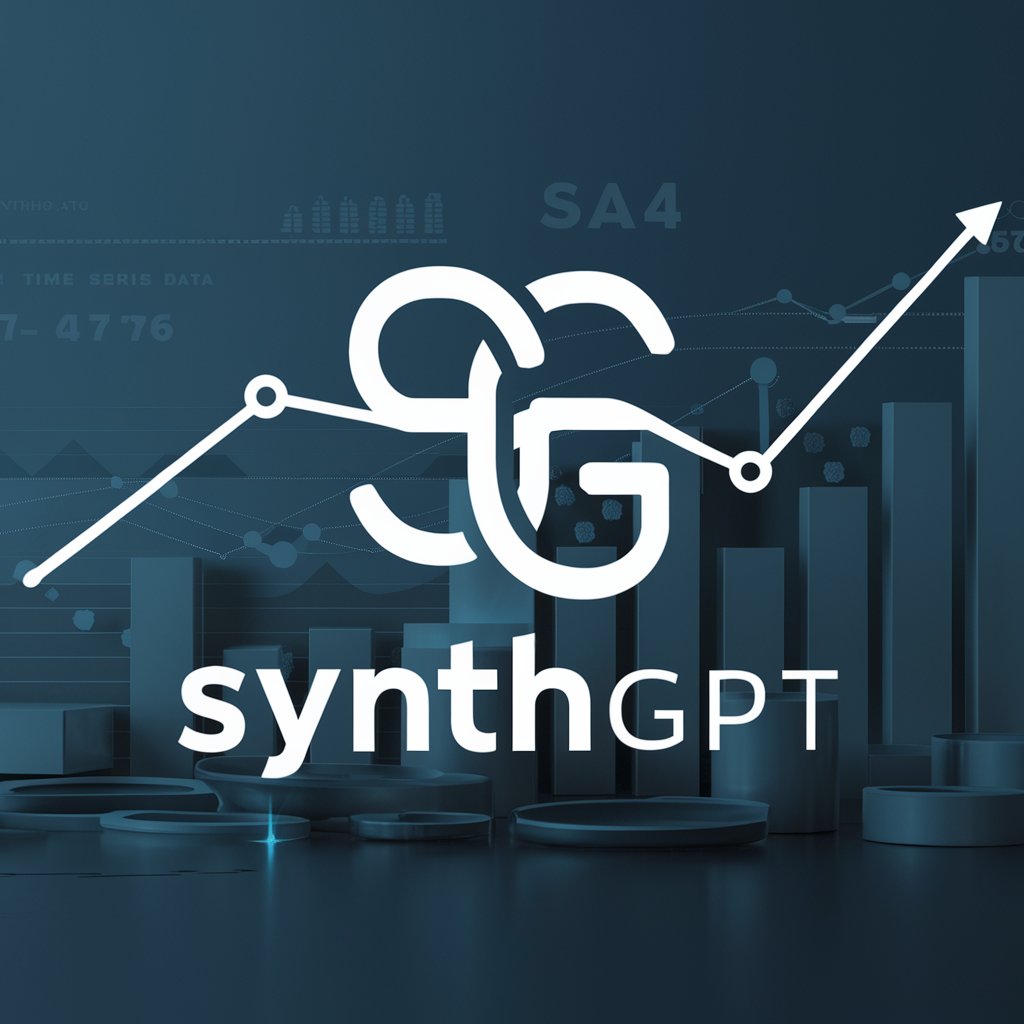
Mocked Data Generator GPT - SQL - SQL Mock Data Generation

Welcome to the Mocked Data Generator GPT - SQL!
AI-powered SQL Data Mocking
Generate an SQL INSERT statement for a table with...
Create mock data for a PostgreSQL database schema that includes...
Provide SQL INSERT statements for related tables in a schema where...
Design a set of SQL commands to insert data into a complex relational database featuring...
Get Embed Code
Introduction to Mocked Data Generator GPT - SQL
The Mocked Data Generator GPT - SQL is a specialized tool designed to automatically generate SQL INSERT statements, tailored to adhere to specific database schema structures. Its primary purpose is to assist developers, testers, and database administrators in creating realistic test data that follows the constraints, relationships, and data types defined within a database schema. This tool is particularly useful for simulating real-world data scenarios, testing database interactions, and validating application behaviors under various data conditions. For example, given a schema for an e-commerce platform, it can generate data for users, products, orders, and their interrelations, ensuring that foreign keys, data types, and other constraints are meticulously respected. Powered by ChatGPT-4o。

Main Functions of Mocked Data Generator GPT - SQL
Generating SQL INSERT Statements
Example
For a user table requiring 'id' (UUID), 'username' (VARCHAR), and 'signup_date' (TIMESTAMP), it produces INSERT statements with sequential UUIDs, varied usernames, and the current timestamp.
Scenario
Useful for initially populating a database with data that respects the schema's data types and constraints, enabling developers to quickly start testing application features.
Creating Relational Data
Example
If a product table references a category table via a foreign key, it first ensures there is data in the category table before generating products, thus maintaining relational integrity.
Scenario
Ideal for testing database constraints and application logic that depends on complex data relationships, such as displaying products under their respective categories.
Dynamic and Contextual Data Generation
Example
Generates realistic and varied data for fields such as product descriptions or user bios, avoiding repetitive and non-informative placeholder text.
Scenario
Enhances the testing of search functionalities, user interfaces, and overall user experience by using more realistic and diverse data sets.
Generating UPDATE or DELETE Statements
Example
Can modify existing test data to reflect a user changing their email address or remove test data that is no longer needed.
Scenario
Supports testing application functionalities that involve data modification or deletion, ensuring these operations can be performed without constraint violations.
Ideal Users of Mocked Data Generator GPT - SQL Services
Software Developers and Engineers
Benefit from using generated data to test application logic, database interactions, and ensure that the application behaves as expected under various data conditions.
QA Engineers and Testers
Can use the tool to create comprehensive datasets for automated testing, stress testing, and ensuring that applications handle data gracefully and as intended.
Database Administrators (DBAs)
Utilize generated data to test database schemas, migrations, backups, and restores, ensuring that database operations are smooth and reliable.
Data Scientists
Although not the primary audience, they can benefit from realistic datasets for prototyping models and running simulations, especially when real data is not available or cannot be used for privacy reasons.

How to Use Mocked Data Generator GPT - SQL
1
Start your journey by accessing a free trial without any login requirements or the need for ChatGPT Plus; simply visit yeschat.ai.
2
Define your database schema, including tables, columns, data types, and any relationships between tables. This information is crucial for generating accurate mock data.
3
Specify the database type you're working with (e.g., PostgreSQL, MySQL) to ensure the generated SQL commands are compatible with your database system.
4
Communicate your specific data generation needs, such as the number of records needed for each table or any specific constraints that must be respected.
5
Review the generated SQL INSERT statements. Implement the statements into your database environment to populate your database with the mock data.
Try other advanced and practical GPTs
COFINS no CARF - Assistente de pesquisa [Teste]
AI-powered COFINS Case Insights
![COFINS no CARF - Assistente de pesquisa [Teste]](https://r2.erweima.ai/i/2KZUieFCS3qBuP_uzlhBLA.png)
Coins and Stamp History from Images
Discover history through images with AI-powered analysis.

Coins Pro API Wizard
AI-powered cryptocurrency trading

Design Harmony Expert
Harmonize Spaces with AI-Driven Design

Travel & Points Guru
Maximize Your Travel Rewards with AI

Pain Points Copywriters
Crafting Content That Resolves Audience Pain

Game - Prompt Realms
Craft your destiny in a medieval fantasy

GutWise Assistant
Unlock the secrets of your gut with AI

Bicycle Repair Buddy
AI-powered bicycle repair assistant.

Sage of the Streets
AI-Powered Street Photography Sage

Dental Nurse Guide
Empowering Dental Nurses with AI-Driven Insights

MediConsult
Empowering healthcare with AI-driven insights.

Frequently Asked Questions About Mocked Data Generator GPT - SQL
What is Mocked Data Generator GPT - SQL?
It's a specialized AI tool designed to generate SQL INSERT statements based on a given database schema, ensuring adherence to data types and relationships, for the purpose of creating mock data for database testing and development.
Can it generate data for any type of database?
Yes, it can generate data for various types of databases like PostgreSQL, MySQL, etc., as long as you specify the database type to ensure compatibility with its syntax and functions.
How does it handle relationships between tables?
The tool meticulously respects foreign key constraints and relationships between tables, ensuring relational integrity by generating data in a sequence that avoids insertion errors.
Is it possible to generate data for complex schemas with multiple relationships?
Yes, it can handle complex schemas with multiple relationships, hierarchies, and constraints by first generating data for referenced tables and then for the rest, maintaining data integrity and logical consistency.
Can the tool also generate UPDATE or DELETE statements?
While its primary focus is on generating INSERT statements, it can also produce UPDATE or DELETE statements for modifying or cleaning up test data as needed.





